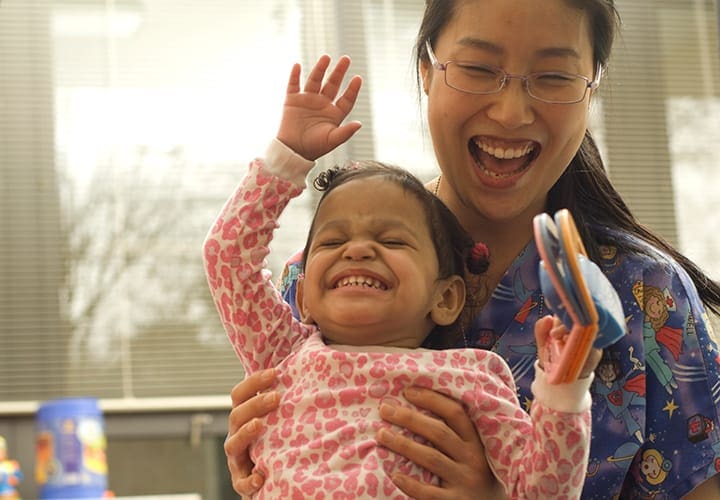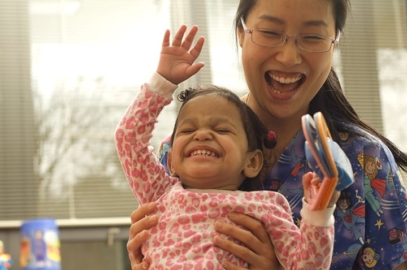February 22, 2019
When and Why to Consider One for Your Child
Patty Romanowski Bashe, MSEd., BCBA
Parents know about pediatricians, the doctors who care for kids from birth through their teens. In most cases, the pediatrician provides essential medical care and is the go-to expert when there’s a question about health or development. But if you have a child with special needs or if you have concerns about your child’s development, you might consider seeing a different kind of pediatrician: a developmental or developmental-behavioral pediatrician.
 A developmental-behavioral pediatrician (usually called simply a developmental pediatrician) belongs to a newer group of specialist doctors. In 2002, the American Board of Pediatrics certified the first developmental-behavioral pediatricians. These specialists are medical doctors who have the same education and certification as regular pediatricians but also have additional training in developmental-behavioral pediatrics.
A developmental-behavioral pediatrician (usually called simply a developmental pediatrician) belongs to a newer group of specialist doctors. In 2002, the American Board of Pediatrics certified the first developmental-behavioral pediatricians. These specialists are medical doctors who have the same education and certification as regular pediatricians but also have additional training in developmental-behavioral pediatrics.
That additional training focuses on a wide range of disorders, delays, and illnesses:
- learning disorders: dyslexia and school-related learning problems with writing, math, and reading;
- attention disorders, including AD/HD;
- behavioral disorders (such as oppositional-defiant behavior) and conditions such as depression and anxiety;
- tics, Tourette syndrome, and other habit disorders;
- developmental disabilities: cerebral palsy, autism, spina bifida, autism spectrum disorders, intellectual disability, and visual and hearing problems;
- developmental delays in learning, speech, language, and motor skills;
- chronic illnesses and disabling conditions: cancer, asthma, diabetes, prematurity, seizure disorders, and genetic disorders;
- complicated problems with feeding, sleeping, and toilet training (including enuresis, or bedwetting, and encopresis, or soiling); and
- overall psychosocial development and specific behavioral issues related to other conditions (for example, illness, autism spectrum disorder, prematurity, and so on).
In addition to providing first-line medical care, a developmental-behavioral pediatrician can address questions about evaluations, medication, other interventions and therapies, and education. They are also knowledgeable about local special-needs resources (other professionals and doctors, educational programs, private and public resources)—a definite plus as parents weight the best options for their child.
While the American Academy of Pediatrics reports that developmental-behavioral pediatricians are in short supply, the Greater New York area is better served than most.[i] That said, parents interested in finding a developmental-behavioral pediatrician would be wise to book a first appointment when concerns arise; wait times are not uncommon due to high demand.
For more information, go to the American Academy of Pediatrics’ special website for parents, HealthyChildren.org
[i] American Academy of Pediatrics, “Research Update: Psychiatrists, Developmental Pediatricians Top List of Subspecialists in Short Supply,” AAP News, vol. 3, no. 8 (August 2010).






